Each day is a new adventure. After all, if it was predetermined, what would be the point? Just ask Nick Heyward about his wild and crazy experiences. Enamored by music from a young age, exposed to everything from Blues to Punk Rock, Heyward would go on to lead Haircut One Hundred to success in the early 1980s thanks to hits like “Favourite Shirts (Boy Meets Girl),” “Love Plus One,” “Nobody’s Fool,” and “Fantastic Day.” Still declaring music his muse after all these years, Heyward returns with Woodland Echoes, his first solo studio album in 18 years! Recently we caught up with the charming Heyward to talk about the journey of a life in music, transitioning from bandlife to a solo artist, his new music, plus much more.
CrypticRock.com – You have been involved in music for over three decades now from your time in Haircut One Hundred to your solo work, enjoying a great deal of success. First, briefly tell us, what has a life in music been like for you?
Nick Heyward – It’s been… what has it been? It’s been inconsistent. It’s never too late to be consistent. You can change your course any particular time. I feel like a boat that went on a journey, and, at some point, became the Mary Celeste. Then I rediscovered the boat and now I’m on another course around places… to uncharted waters. I seem to be on course for the mainland again, which is really good. I’m still afloat (laughs).
CrypticRock.com – Well, that is a very positive thing, no road is ever straight. There are always detours and roadblocks wherever you go in what you do in life.
Nick Heyward – Yeah, they’re the mistakes you learn from. You learn to adapt and to adjust. It’s that process that makes it fascinating. When I grabbed hold of the mic in my brother’s Punk band rehearsal, I just grabbed it, and I just shouted into the mic. I was like, “Oh wow, I’m making a sound.” It was just a growl, it was a racket. At that particular point, no influences appeared, just raw Punk, but I’d been to see Count Basie, Ray Charles, and Oscar Peterson on one bill in a house when I was with my dad when I was a kid. I’ve been to see Rory Gallagher, Sparks, Eric Clapton, Talking Heads, and XTC. I’ve seen loads and loads of interesting music.
I sat outside my brother’s bedroom, and heard “Jeepster” by T. Rex and thought, “What’s a Jeepster?” and then heard “Hold Your Head Up High” by Rod Argent, and I thought, “What’s that? What’re you doing in there?” It was like a magical kingdom going on behind that door. Then, when he was out, you’d kind of go in there, because your brother would kill you if you were in his bedroom, and there’d be these wall to wall amplifiers. You would say, “Hey, that sounds alright.”
Therefore, that develops, and by the time I’d had bands, and then rehearsed, that Punk sound had developed into something you made. It’s almost like observing yourself being something you didn’t think you were going to be and what you actually were, seemed to be two totally different things. So, when I started the band, the modern revival was kicking off, and my band went to play at The Wellington at Waterloo. That was the cultural wave that was headed toward the beach at the time. Everybody was surfing, because that was the cultural waves in the UK. It was just massive, and everybody went with them. You couldn’t go against the surf, because you’d just get swallowed up. So, we all surfed it, and some people ended up on a beach… and some wouldn’t.
We were just learning, and when the modern revival thing happened, we all started like Talking Heads and XTC, that was because they were the bands you like. When you’re cutting your teeth, you just sound like the bands that you love. Then, you develop your own style like the Fleet Foxes suddenly discovered their own style. Up until then, they’d been many other bands. I think they were like Elliott Smith, because they loved Elliott Smith. This is it, we’re all roaring with influences; then, suddenly, the inner songwriter/artist starts to come out in you. You find your inner voice.
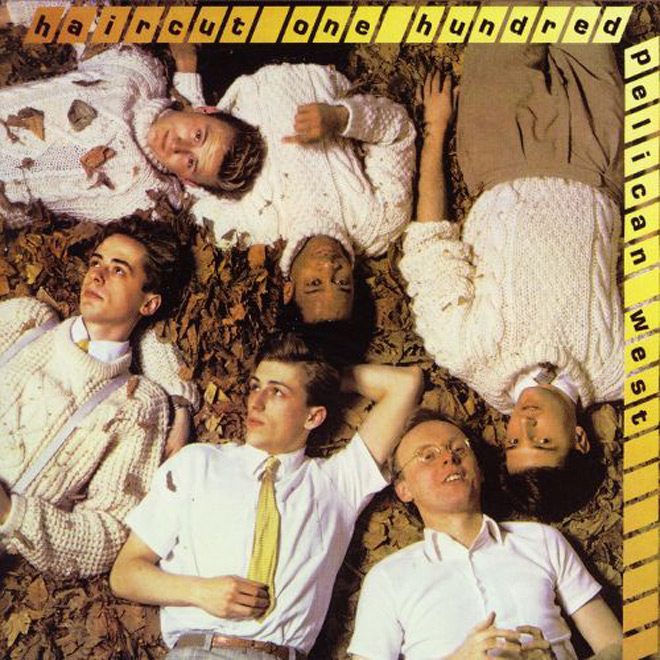
CrypticRock.com – It is fascinating how that works, and sometimes it takes time to find your own voice. As mentioned, Haircut One Hundred celebrated a good deal of success back in the 1980s. The band’s 1982 debut, Pelican West, turned 35 years old in 2017. In retrospective, how would you describe that period for you and the band?
Nick Heyward – It was exciting, frazzled, frantic, a free for all. It was chaotic, creative, extreme, bewildering (laughs). It was happy, thrilling, and distraught. There were so many things, it was quite a ride. It was like white water rafting. It was intense, it was for the first year… very intense.
We were developing as a band because there were six of us. Originally there were three friends, then, two friends, then, one friend coming together in a band. Three of us from one area, South London, then two from the other side of London, and one from Memphis, Tennessee (laughs). We were getting to know each other on this roller coaster that was happening. We were a band that were together before, for a long time. The three of us were initially Les, Graham, and myself, friends in South London. We had a strong foundation there, but then we had to develop as a six-piece band. We had to get to know each other on tour. That was another process that was going on as well.
I said free for all earlier, because we had a manager, we had our Brian Epstein in the beginning. He wasn’t honest, so had to go, but he was our connection to the record company. He was the person that took the ideas to, he was the person, who conveyed everything well. He just wasn’t conveying it honestly on the financial side of things. Then there was no guidance, we were kind of like a rudderless ship, and everybody was kind of managing us. So it felt like our tours were just filled with people we didn’t know (laughs). It was very strange.
We didn’t have any training, we didn’t know what this was going to be, so this is what it was. It was also a great time for music in general. It was still attached to the 70s, which was Rock-n-Roll times when it really didn’t matter about anything like that. Bands didn’t know how to behave or be… everything was just being. Bands like The Who had gotten themselves together by then, but there were still young bands like us, who were kind of being flung in there to see how it all went. It was still quite Rock-n-Roll and wayward in the music world on the business end. We were trying to stay afloat.
CrypticRock.com – It sounds like it was a pretty interesting time full of ups and downs. Beyond Haircut One Hundred, you also would go on to a solo career shortly thereafter in 1983. How would you compare being in a band opposed to working solo?
Nick Heyward – It wasn’t something I’d aspired to. I never aspired to be a solo artist. Like I said, I’d always been a band fan. I loved bands, I grew up with bands. With my father, I saw Count Basie, big bands, where there were a lot of guys on stage, so I never saw the solo artist appealing so much. There were some of the guys, but Marc Bolan, even he had T. Rex where he played in the band with musicians. All my favorite music was bands. So, being solo wasn’t something I aspired to. I didn’t know how to be. I didn’t have aspirations to be the frontman in that was, like David Bowie. I didn’t know what to do with my hands or face. I remember thinking, “What do I do with my face? I should do some frontman expressions or something. There’s a lot of people looking, so maybe I should do something fun with my mouth, move my eyes more, or…” I was a bit self-conscious as a frontman, and I had a guitar, so there wasn’t much I could do. I could wriggle my guitar like an axe, but I really couldn’t do that. So, I felt a bit self-conscious as a frontman. I was more like David Byrne or Andy Partridge with a guitar. There’s not much you can do, it’s quite restricting if you’re a solo artist, just standing up there with a guitar.
When you see Glen Campbell and you’re seeing it, there’s not much movement going on there, and the same went for me. You could drop your knees down a little bit and spring up and twist around, but there’s not much you can do. If you want to do that, in the process of doing that, you’ve probably played the wrong note… unless you’re Hendrix, who could do many things, which is probably why he ended up setting fire to his guitar. There was once when I put down the guitar, I felt naked, so I put it back on, because I was like, “Ooh.”
The difference between being a solo artist is you can do anything. I’ve grown into that over a period. I’ve accepted it, and embraced it, and I really like it, but I would do projects with bands to just be in that band. A band is a very creative environment. It’s very easy, because you’ve got your place in the band, you’ve got your role. It is – this is the role that you do and you just have to do that well. I think it was Noel Gallagher that said, just of late, he got the guitarist down very well, he knew his role so well, the guy played guitar, but stepping into the frontman position is like a winger playing center forward in football. Or in American football, it’s like becoming the quarterback and going, “Oh, I haven’t quite trained for this!” You might not be a natural quarterback. David Beckman is a natural kicker, he is just natural at it. We all have our roles we excel in. I haven’t really embraced the center forward, aka frontman, role as much as you do in a band. It is a much easier job to do in a band. I am still working on that one (laughs). In the meantime, I’ll just stand there with my guitar and be a singer-songwriter, because you don’t have to do much.
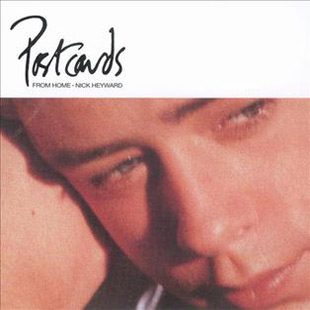
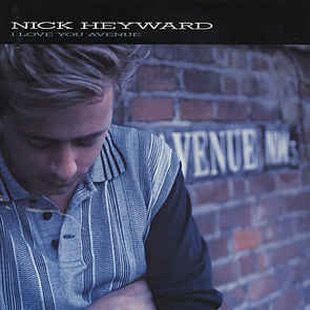
CrypticRock.com – (laughs) That is a very interesting perspective on being a solo artist. Speaking of your solo work, you recently released Woodland Echoes. This is your first solo album in 18 years! What inspired this new collection of songs?
Nick Heyward – It was inspired in 2007. From around 2004 to 2007, I’d been improvising and sharing music directly on Myspace. My son got me a Myspace page, and I thought, “This great, I can record and put something up. I can share my doodles.” I wasn’t coloring them in or developing the songs into anything, but I was sharing these improvised works. I had a laptop, Logic, and a pair of speakers, but did not know how to work it. I just sang anything into the mic, and pressed stop, and played it back. I just wanted to see if I’d recorded it. I played it back, and I thought, “Wow, that felt more like a song. I think I’ll call that something.” I called it “A Diamond.” I did another one and another one, and I thought, “Oh, I can share these, just with nothing colored in, just with guitar and vocal, just with improvised lyrics… just with different choruses and everything.” I didn’t know what I was singing about, but I was singing anyway. It was nice and liberating to be an artist, and share it, because I do feel comfortable in an improvised situation. On stage, I like improvising, so this felt really comfortable.
I felt good about that, but then in 2007, I thought, “I am going to develop a song,” and developed one called “Forest of Love,” which ended up on this album. I thought, “I like that, that’s got a more of a developed story.” So I started recording in a spare room and one thing led to another. Then, my son got a job in a music studio, and I’d go in there. Then, I went to Key West, where we recorded with Ian Shaw who I worked with in the ’90s. I went out to visit him, and he got a boat in Key West, a house boat, not a big boat or anything, a rickety galleon. So, I ended up recording in his rickety galleon and then in Lance Taylor’s rickety galleon that was around the corner that was mahogany wood. Then recorded some drums with Joey Marciano there.
Key West is a vibrant town full of Blues and bars. As an Englishman, I was really inspired by everything that was vibrant, the creatures were vibrant. There was a dinosaur that creeped into my room, an enormous green thing, they ran wild, and you wondered, “What is this place?” You wake up to the heat… it’s so intense. It’s tropical, and bits of it looks like New Orleans with bands having funerals walking down the streets and playing brass. I said, “Wow.”
Then there is Ernest Hemingway’s house, and I’m sitting in Hemingway’s garden writing lyrics surrounded by cats. I thought, “This is amazing. Not like being in a spare room in the countryside.” That’s why Woodland Echoes has got quite a varied landscape – it was recorded over varied time and travel. I was going from one place to another – from the countryside and the spare room filled with nature to ’90s Rock with Ian Shaw in a houseboat in Key West! It’s got a lot of different things, and some of it didn’t make the album, but the ones that did, seem to tell a story. It’s like a romantic story. It’s musical, it has a beginning, middle, and an end. It’s Woodland Echoes, the musical… a real romantic story.
CrypticRock.com – Absolutely, it is composed of a lot of beautiful tracks. This is quite an easy listening record with a lot of relaxing pieces. Did these ideas come as you travelled or were some ideas that came from beforehand that were sort of put on the backburner?
Nick Heyward – Some came from lyrics like “Beautiful Morning.” I did want to capture the essence of a morning unfolding from night, because when is that moment? I had a profound moment, an experience, where time seemed to stop in 1998. It was the 30th of April in 1998 when the night became the morning, but it became one eternal. I was laying on the kitchen floor in this eternal place that I’d never been to before. Normally, everything had been such a struggle in this time-based thing. Here, I’d been lying here in this physical state, I didn’t know why, because everything was horrible – my mum was dying, the record label dropped me, my girlfriend had left. So, how come I was lying in this physical state? I didn’t understand it at all.
I wanted to write a song about it for many years, but I couldn’t seem to capture it. So I wrote the lyric for it, but it took me four goes to get the music right for the song that was just about the unfolding of a beautiful morning that transforms from the crickets into the bird’s’ song – which is from the stars like secrets of the universe revealed, and the crickets that go into the morning. It was a metaphor, but it was also literal. I woke up to the eternal place in the morning literally, and everything never seemed so beautiful… and this was the most beautiful morning. Even though the weather wasn’t particularly good, but everything sounded like I’d never heard it before. The early morning birds’ song was clearer, the sky was more turquoise. It was spring, so things were vital out the window anyway. When I walked outside and smelt the air, it felt like the first time I’d smelt air, it felt like a fragrance I’d just bought from a shop… it was amazing!
I wanted to capture that, so therefore, the first lyric was, “When the morning sun arises.” That’s what I wanted to convey, and that first attempt musically didn’t quite get there. The inner songwriter in me said, “It hasn’t reached its full potential, Nick,” and the artist in me says, “Yes, it has, come on, let’s get it done, let’s get it pressed.” Then, the inner songwriter says, “No, I think you can do it better.” So, you’d have a go, and I got it on the fourth time when I was just sitting in my spare room in Stoke Row, in the countryside, which is a lovely place with a tiny little wooden cottage.
I played an A minor and a C and a G, and a D, really simple chords down a semitone… and the words popped out! That normally comes by switching records and having that luxury. Up until then, when I was younger making records, you couldn’t just switch records and just do it. You had a producer and an engineer, and you were in there, the studio was normally 1,000 pounds, so the pressure was on, the record button was on. You had to have it prepared early, you couldn’t go in with nothing…even though I did many a time thinking I’ll just make it up when I go in there (laughs). That’s what it used to be with gigs, I was like, “Well, I don’t have any lyrics, but I’m sure I’ll have something by the end of the evening.” So, that place of improvisation is more relaxing than having things prepared, sometimes.
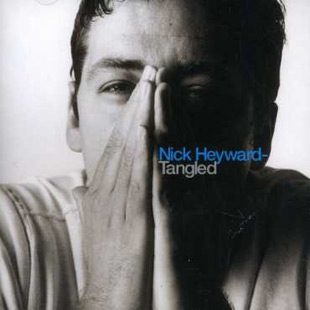
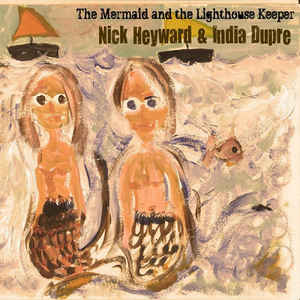
CrypticRock.com – It really sounds like an exciting process. It is also to see your vivid vision come to fruition. Can we expect some more live shows to coincide with the album’s promotion?
Nick Heyward – I think it’s going to happen the same way this record is happening – to build it, and see if they come. It’s just one thing that leads to another, or see how it goes. It has started to pick up, it seems. It’s a bit of an organic thing planted out there. It’s my own label, and therefore, that led to Sony Records. I think the dates will happen in a similar way. There’s already talk, because people are talking about it, and it is nice. I think it will happen, it looks like it will. I hope it does. If it does, great. If it doesn’t, great. The inner artist is already saying, “Yeah, let’s tour!” Some songwriters say, “I’d like to go back into the studio.” So, there is a ‘live’ person in there going, “Yeah, let’s communicate this, let’s perform this. Let’s get it on stage, let’s get out. Let’s pull that curtain wide!”
CrypticRock.com – It would be exciting to see you back on the road, particularly touring in North America.
Nick Heyward – Yeah, I’d like to take a bunch of woodland creatures. Wouldn’t that be great? Musicians dressed up as woodland creatures. That’d be fantastic! Like a whole Woodland Echoes thing going on. Like a massive musical with a whole bunch of people dancing, I’d love it. But hey… an acoustic guitar starting it off might be the thing (laughs).
CrypticRock.com – (laughs) Yes, perhaps starting it simple would be a good idea.
Nick Heyward – Well, you’ve got the crazy person that goes on inside. It is a multi-faceted place inside. You see the full potential in what it could be, then you have the realist who goes, “One thing at a time, Nick, get your acoustic guitar out and play…put your shirt on first.” (laughs)
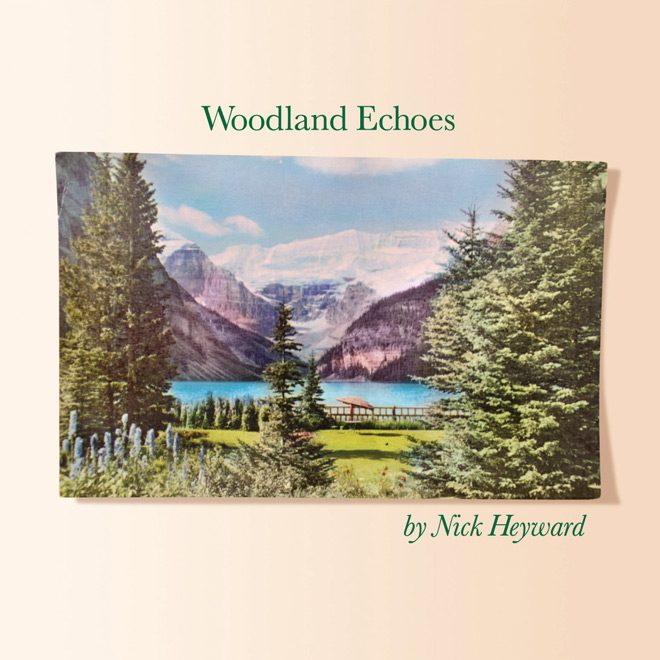
CrypticRock.com – (laughs) First things first, right. My last question pertains to movies. CrypticRock covers all facets of music, but we also cover movies, particularly in the interest of the Horror and Science Fiction genres. If you are a fan of either of those genres, do you have any favorites?
Nick Heyward – Horror is not something I normally go to, because I was weaned on things like The Graduate (1967). It was real, it seemed to be real, live, and music, I couldn’t believe the music was in the film. As far as Horror, I couldn’t get The Exorcist (1973) out of my head when I saw it. It was so real as a Horror film, I felt it was totally possible, so I was transfixed by that film.
I’d just seen a film called A Ghost Story and it’s so funny because it’s just like a ghost with a blanket, a white blanket over their heads. There was a moment in the film when one ghost with a white blanket over the head, looks out of the window at another house to see another ghost with a white blanket over its head and they kind of connect with each other. It’s about the funniest thing I’ve seen for years. So, that was amazing.
Science Fiction, Close Encounters of The Third Kind (1977) is a profound film that affected me. I totally understand Richard Dreyfuss when he was trying to get that hill, and he was trying to discover what it was. When he chopped off the top of the hill, and he got it, that’s when he knew. That’s when the other people were joining up to find this hill that was chopped off, and that’s where the connection with the universe was.
Eventually, that’s how I felt that night on the 30th of April, I felt like I’d had that visit from the universe. I remember the plumber coming around, and I’ve had plumbers coming around many times before, but I was suddenly having a conversation about the universe and the connection with it with the plumber. Then, I went over to the shop on the corner to buy some crisps and milk, and I ended up having a talk again about the universe with the Indian chap there. He talked about how it was in India growing up as a kid. I’d never even noticed that we’d had a conversation longer than “Thanks” and “How ya doing today?” and “Bye.” Everything seemed to open up with this connection with everybody and everything. That Close Encounters of The Third Kind moment is a similar kind of thing.
Initially, I was a bit frustrated thinking, “What on earth just happened?” Gradually, you just meet people that had a similar experience. It’s great, like a visitation from the universe. It’s great, they’re out there (laughs). I’m sure they are, they have got to be. Who knows, maybe they aren’t even people. Maybe, they’re just biscuits (laughs). Wouldn’t that be great if they were? They’re all your favorite biscuits. Everybody’s all scared of these people, but they’re actually your favorite biscuit in form. Maybe, ghosts aren’t even ghosts. Maybe, ghosts aren’t even terrifying things at all. Maybe, there isn’t anything terrifying at all. Maybe, it’s just seaweed.

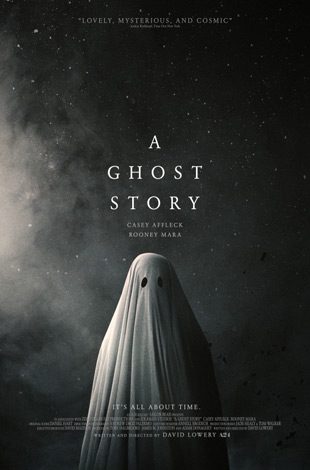
CrypticRock.com – (laughs) You never know, anything is possible.
Nick Heyward – Yea, maybe there isn’t anything more scary than seaweed. That’s the thing, in the human imagination, everything’s possible.



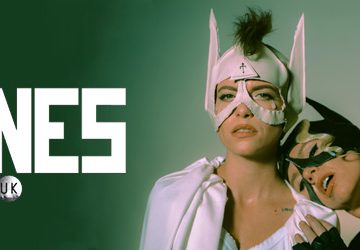


No comment